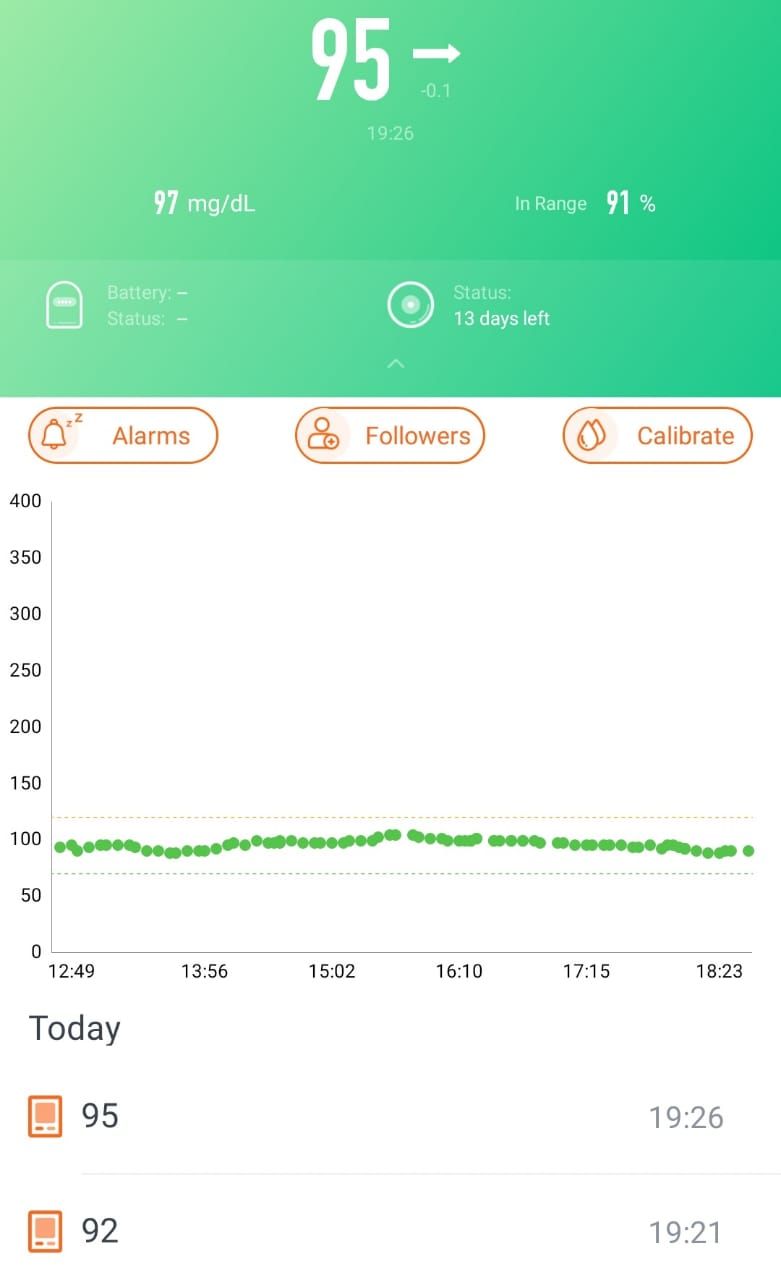Basal testing
Disclaimer: This article does not replace medical advice, please consult with your healthcare professional to make changes in your insulin regime. The author is a Certified Diabetes Educator & lives with type 1 diabetes.
Insulin is a hormone made by our bodies and is necessary to live. Depending on the type of diabetes you have, your body either makes little to no insulin or it does not utilise the existing insulin properly. If your doctor starts you on insulin therapy, it's important to know that there are 3 major types of insulin and each has a different purpose - bolus, basal & pre-mixed.
What is basal & why is it important?
Basal is the generic name for long acting insulin. Basal insulins can broadly be classified into intermediate, long acting and ultra long acting and they differ by duration of action time and price, among other factors. The brand names of basal insulins that you might be familiar with include Lantus, Tresiba, NPH, Insulatard, Levemir, Toujeo, Basalog, Basalgar etc. For people on insulin pumps, their pumps pulse a pre-decided basal rate every hour.
The primary task of basal insulin is to keep your blood sugars steady. Diabetics' sugars can go up even without food (during periods of fasting, such as sleeping) because the liver secretes glucose into the bloodstream. If your basal is not set correctly, you'll spend all day and night chasing lows and highs and getting frustrated. Therefore basal testing, while not the easiest thing to do, is very important. A perfectly titrated basal will keep your blood sugars a lot more steady, it will make it easier to fine tune your bolus (short acting or meal time insulin) and it will help you get a good night's sleep without the fear of dangerous night hypos.
Who said diabetes was easy? It's like walking a tightrope between immediate life threatening hypos and long term devastating hypers
A lot of people, especially parents of young children with T1D or people living alone prefer to run their blood sugars very high at night to avoid any scary night time hypos. What happens when you run your blood sugars high over a prolonged period is a whole different set of problems and diabetes complications, which are naturally best avoided. Basal testing greatly solves this issue by ensuring your BG is steady for the most part.
Basal is the foundation of a bolus basal insulin regime

How to test basal
An effective basal test comprises of 4 parts:
- Fasting - Is fasting necessary? Yes. The only way to effectively test basal is to eliminate all other variables that affect BG (the major variable being food). Depending on your comfort, age and other factors, you could either fast in one go for 24 hours, or you could fast 12 hours & split the basal test over two days (for example, fast from 07:00 to 19:00 hrs today and fast from 19:00 to 07:00 hrs tomorrow) or fast 8 hours at a time and split the basal test over 3 days (which effectively translates to skip breakfast on day 1, skip lunch on day 2 and skip dinner on day 3). The idea is to get an overview of your sugars over a period of 24 hours without the other variables interfering.
- Testing - As if fasting wasn't hard enough, you also have to test your blood sugars on a glucometer every one hour when you're basal testing in the day time and every two hours at night (loud and annoying alarms are my best friend!). Remember, good things take effort and time!
- Logging - Testing is pointless unless you log down every single sugar reading, analyse and make necessary changes. It makes it convenient to log using mobile apps and pulling out a report later to analyse. Don't forget to note down your BG every one hour!
- Making changes - If your sugars vary less than 30 mg/dl (+ or -), you can be rest assured your basal is set properly. If your variation in sugars is higher than 30 mg/dl, that means you need to adjust (either decrease or increase) your basal dose. For example, if my BG during basal testing at 8AM is 90 mg/dl and at 9AM it's 50 mg/dl I can infer that my basal is probably high and I need to reduce my basal dose a bit. Likewise if during my basal test, my BG is 120 mg/dl and after 2 hours it's 200 mg/dl, I can infer my basal dose is too low and I need to increase it. How much to increase/decrease basal? It's a good idea to start with conservative 10% increments (for those on MDI) and take it from there. Pumpers can adjust more minutely, as required.
'Pre' basal test checklist
- Start when your sugars are in range. If you have a hypo or hyper, defer the basal test for later. If you have had a hypo upto 6 hours prior to the test, postpone the basal test. Read our hypo management guide.
- No active bolus insulin. You should not have bolused in the last 4 hours (if you're on analog insulin and longer if you use Regular/Actrapid insulin. Pumpers should not have used the Square or Dual wave bolus feature for the last meal to ensure there's no active bolus).
- Your last meal or snack should be at least 4 hours prior to the starting basal testing and it should not be high in fat (fat greatly slows down the spike of sugars and that could affect your basal test).
- On the other hand you should not have fasted too long (over 12 hours) before starting the basal test. Fasting for prolonged periods may suddenly alter the insulin sensitivity and hamper the basal test results.
- Do not basal test if you are unwell (or are unusually stressed or have consumed alcohol in the last 12 hours). Insulin needs change during illness. Since sickness is a temporary episode, basal test once you are well. Read our sick day management guide.
- Do not basal test too close to your menstrual cycle. Periods impact our blood sugars and change our insulin requirements. Read our menstruation & diabetes management guide.
- Do not basal test if you have done very unusual or intense physical activity in the last 12 hours or so. Regular exercise that you do everyday/often is fine. Read our exercise and diabetes guide to learn about the impact of exercise on blood sugars.
- Take your normal basal dose - this is exactly what we are testing. Don't skip your basal shot or don't suspend or disconnect your pump or set a temporary basal rate. Keep basal as is.
- Do not change your infusion set/patch or cartridge the day you decide to basal test. Do it a day prior or a day after.
'During' basal test checklist
- Do not consume any food during the basal test.
- You may have water or any non-caffeinated, non calorific beverages.
- If you get a hypo (below 70 mg/dl) or hyper, treat with glucose (for hypo) and insulin (for hyper) and postpone the basal test to another time.
- Normal activity or moderate exercise that you do everyday/regularly is fine. Do not do anything unusual or too intense.
- Test your blood sugars every one hour and don't forget to log it down.
- Do your normal daily activities.
'Post' basal test - Analysis
To test if your newly set basal is truly correct, you might have to observe your trends a little closer or preferably basal test again. Continue to re-test until BG is steady. It's definitely a lot of work but trust us, it's well worth the effort.
Is basal testing same for syringes, pens & pumps?
The basic premise of basal testing remains the same whether you are on MDI or insulin pumps and basal testing is required for all, irrespective of method of insulin delivery. If you're on the pump and want to make basal adjustments, ensure you change the basal an hour or two before the low or spike. Also if you're on the pump and have too many basal rates it doesn't serve any purpose because by the time one basal rate starts working, it moves into another.
FAQs
- Do my basal needs have to be a particular percentage of my total insulin intake for the day, like 40-60%? Not necessary, there's no fixed standard since each person's needs are different, do what works for you. For example, if you're low carb your basal will make up a comparatively larger percentage of your total daily dose. The dose that makes your BG stay in range is the correct dose for you.
- If I wear a CGM or FGM, do I still need to test on my glucometer every one hour? Ideally yes, but you could take a call and use your glucometer at least once every few hours.
- If I don't eat every few hours, my sugars go low. How to basal test then? Lack of food doesn't cause low blood sugars - a higher basal dose could be one of the causes of hypos. This is all the more reason to basal test.
- I take basal only once a day (let's say Lantus) and I've basal tested and noticed I go high at the 18 or 20 hour mark after my basal shot. What do I do? You might need to split your basal into twice a day (or more) since certain basal insulins don't work the whole 24 hours. It's a combination of the standard action time and your individual body's response to it. Consult your HCP.
SUPPORT BLUE CIRCLE DIABETES FOUNDATION
We need your help and support to continue to grow, expand and touch the lives of countless people in the diabetes community. Every little bit helps us in sustaining this endeavour. Our NGO is registered under Section 80G of the Income Tax Act, India.
Click here to donate

